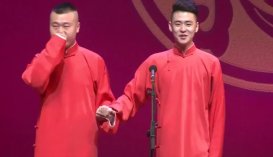动态链接库在Windows中为.dll文件,在linux中为.so文件。以linux平台为例说明python调用.so文件的使用方法。
本例中默认读者已经掌握动态链接库的生成方法,如果不太清楚的可以参考动态链接库的使用
调用上例动态链接库的使用中的sum.so
|
1
2
3
4
5
6
|
import ctypesso = ctypes.CDLL('./sum.so')print "so.sum(50) = %d" % so.sum(50)so.display("hello world!")print "so.add() = %d" % so.add(ctypes.c_float(2), ctypes.c_float(2010)) |
output
|
1
2
3
|
so.sum(50) = 1275hello world!so.add() = 2012 |
注意:
- 如果python在调用C函数内部出现了问题,系统不会提示具体出现什么问题,只会提示"segmentation fault"。所以最好是先用C语言调用该动态库验证没有问题了再提供给python调用。
- python传参给C函数时,可能会因为python传入实参与C函数形参类型不一致会出现问题( 一般int, string不会有问题,float要注意 )。这时需要在python调用时传入的实参做一个类型转换(见so.add(float, float)函数的调用)。转换方式见下表:

数组的传入传出
如果将python中list传入C函数数组,则需要提前转换。
|
1
2
3
4
|
import ctypespyarray = [1, 2, 3, 4, 5]carrary = (ctypes.c_int * len(pyarray))(*pyarray) //有点类似malloc的方式生成carrayprint so.sum_array(carray, len(pyarray)) |
如果如果需要将C array返回python,需要提前把array传入,然后在C函数中修改,返回时再把c array转换为np.array
|
1
2
3
4
|
pyarray = [1,2,3,4,5,6,7,8]carray = (ctypes.c_int*len(pyarray))(*pyarray)so.modify_array(carray, len(pyarray))print np.array(carray) |
output
[10 20 30 40 50 60 70 80]
也可以用形参方式提前定义函数接口,然后再传入numpy结构
|
1
2
3
4
5
6
7
8
9
10
|
import ctypesimport numpy as npfrom numpy.ctypeslib import ndpointerso = ctypes.CDLL('./sum.so')pyarray = np.array([1,2,3,4,5,6,7,8], dtype="int32")fun = so.modify_arrayfun.argtypes = [ndpointer(ctypes.c_int), ctypes.c_int]fun.restype = Nonefun(pyarray, len(pyarray))print np.array(pyarray) |
注意:numpy中的数据类型指定很重要,即dtype的设定
图片的传入传出
转递数据域
背景知识:
python中的opencv图片是用numpy的方式保存的,而opencv3 C语言的图片数据结构为cvMat (IplImage已经逐弃用)
所以需要把python中numpy图片转换为ctypes.POINTER(ctypes.c_ubyte)的指针转入其数据域,再将其行列信息传入,就可以在C中从最底层初始化一个CvMat,如果要初始化一个别数据结构的图片也是同理(如darknet的image,caffe的blob)
python numpy image 转换为 C pointer的方法
|
1
|
python_frm.ctypes.data_as(C.POINTER(ctypes.c_ubyte)) |
注意:传入numpy image前一定要确保numpy image是numpy array数据类型
比如我遇到的bug
|
1
|
image = cv2.imread("xxx.jpg"); |
image传入ctypes_so.fun之中图片是有效的,但
|
1
|
image = cv2.imread("xxx.jpg"); |
这时候进入ctypes_so.fun的图片会变成一个乱码
即,crop之后的numpy image的type虽然也为numpy array,但实际传入的image data却不正确
解决方法:
无论是何种方式得到的numpy image,都强行转换为numpy array,再传入ctypes_so.fun
|
1
|
image = numpy.array(image) |
可以解决这个bug
如果使用opencv2 可以考虑直接将numpy image转换为IplImage
opencv3 python已经不支持cv2.cv的函数了
但Opencv2可能还可以尝试以下方法
python调用C++中的类
因为python不能直接调用C++中的类,所以必须把C++中的类转换为C的接口
转换原则
- 所有的C++关键字及其特有的使用方式均不能出现在.h文件里,.h中仅有C函数的包装函数声明
- 在class.cpp中实现对类的成员函数接口转换的函数,包括对类内成员的读写函数get() and set()
- 如果要在包装函数中要实例化对象,尽量用new constructor()的将对象的内存实例化在堆中,否则对象会被析构
- 记得在所有包含函数声明的文件中加入以下关键字,声明该函数为C函数,否则该函数的符号不会记录在二进制文件中
|
1
2
3
4
5
6
7
|
#ifdef __cplusplusextern "C" {#endifxxxxxx function declaration xxxxx#ifdef __cplusplus}#endif |
以上就是本文的全部内容,希望对大家的学习有所帮助,也希望大家多多支持服务器之家。
原文链接:https://www.cnblogs.com/fariver/p/6573112.html





